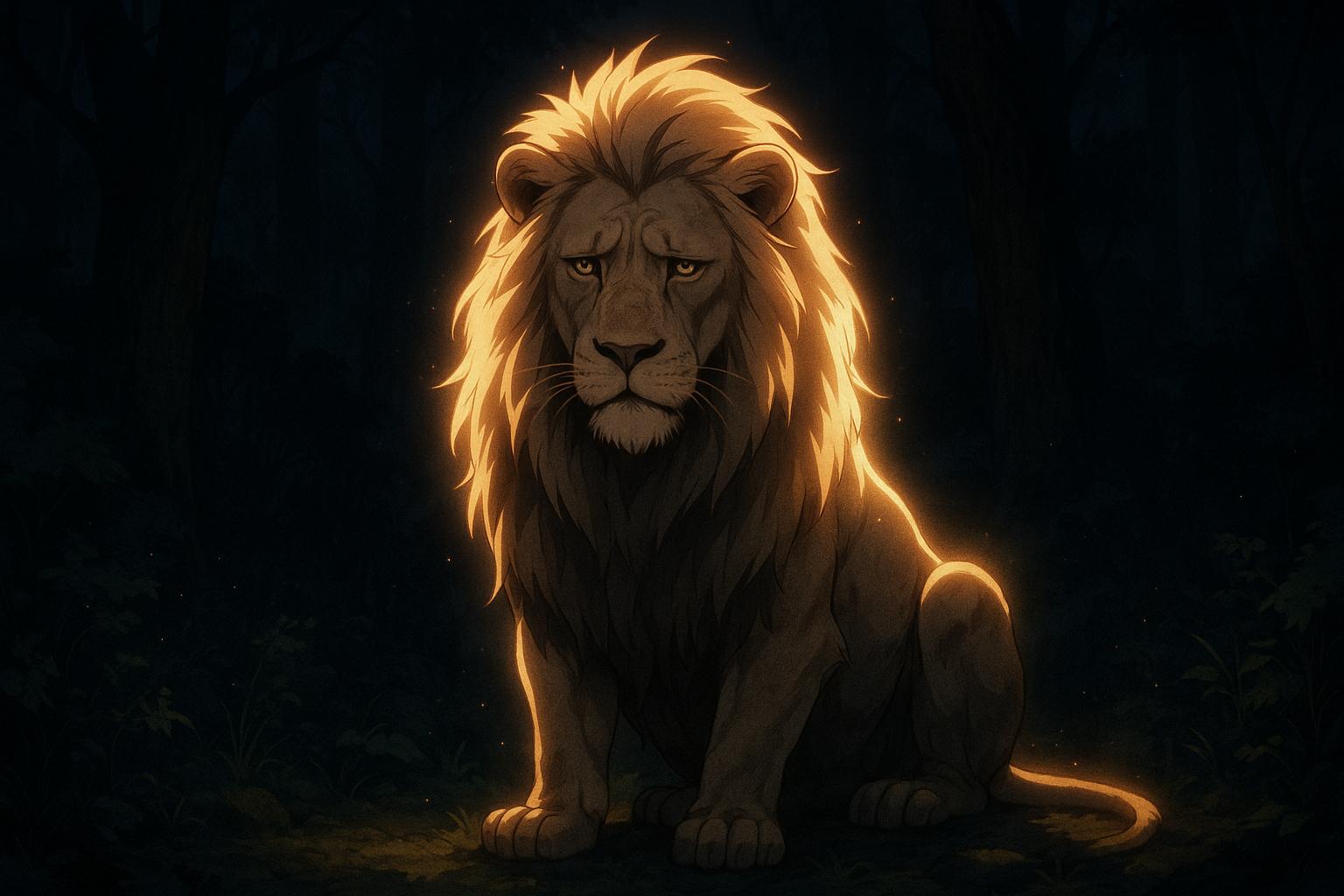Ten years after the killing of Cecil the lion ignited global outrage, British trophy hunters continue to kill hundreds of animals annually, raising ethical and conservation concerns. Despite a UK ban on importing hunting trophies, debates over the practice’s impact and necessary legislation persist, highlighting tensions between wildlife protection and local economic interests.
The brutal killing of Cecil the lion a decade ago sparked outrage across the globe, an event that remains etched in public memory as an emblem of the travesty of trophy hunting. Cecil, lured out of the protected Hwange National Park in Zimbabwe and shot by an American dentist, became a symbol of the dark underbelly of a sport that some still defend as a legitimate practice. The dentist faced significant backlash, losing business and facing scorn from animal rights advocates, yet the issue extends far beyond one man’s actions.
Coinciding with the anniversary of Cecil’s death, reports confirm that British trophy hunters continue to kill hundreds of animals each year, with over 100 lions reported to have been taken since that fateful incident. These hunts are often carried out by wealthy individuals who pay substantial sums to target endangered species, including elephants, polar bears, and narwhals. The disturbing trend points not only to a lack of understanding regarding conservation but also to a concerning moral void in the practice itself. With many hunters choosing to shoot from moving vehicles or helicopters, the notion of “fair chase” in hunting is rendered meaningless.
Conservation efforts in Africa, where local communities have long recognised the importance of wildlife tourism, are increasingly under threat from trophy hunting. Many locals understand that preserving these majestic creatures not only ensures the survival of species like the endangered cheetah, but also supports economic stability through eco-tourism. Moreover, strikingly, a recent study highlights that community engagement in wildlife management can lead to more sustainable outcomes than trophy hunting, which often benefits only a small elite.
Legislatively, the UK has taken steps to address these practices. A ban on the importation of hunting trophies for nearly 7,000 species came into effect in March 2023, reflecting a significant shift in public sentiment. As Environment Secretary George Eustice emphasised, this initiative aims to prevent hunters from exacerbating the plight of endangered species, with 86% public support demonstrating a clear consensus on ending such practices. However, the debate is not without controversy; some experts caution that the ban might inadvertently lead to negative consequences for wildlife conservation, as it may reduce funding that supports local communities reliant on trophy hunting for income.
The Labour Party recently urged the revival of legislation that had been stalled, emphasising the need to protect endangered wildlife from trophy hunting’s impact. Critics argue that failing to act in a timely manner makes the government complicit in the ongoing trade. The Labour Party’s stance echoes a broader concern about the ethical implications of trophy hunting and the narratives often employed by advocates, which frequently overlook the perspectives of local communities.
As the world grapples with the moral implications of hunting for sport, the lingering question remains: how do we balance human desires with the urgent need for conservation? Moving forward, the conversation will likely pivot from the actions of individuals to the systemic changes needed to protect vulnerable wildlife, ensuring that the legacy of Cecil the lion serves not as an example of tragedy but as a catalyst for meaningful progress.
Reference Map:
- Paragraph 1 – [1], [5]
- Paragraph 2 – [1], [2], [6]
- Paragraph 3 – [4], [3], [7]
- Paragraph 4 – [6], [5]
- Paragraph 5 – [1], [6]
Source: Noah Wire Services
- https://www.express.co.uk/news/uk/2061799/labour-stain-our-nation – Please view link – unable to able to access data
- https://www.reuters.com/business/environment/zimbabwe-look-east-trophy-hunting-export-markets-2024-05-28/ – In May 2024, Zimbabwe’s wildlife authorities sought alternative trophy hunting export markets in Eastern countries due to European bans on trophy imports. This move followed Belgium’s ban in February 2024 and the UK’s 2023 legislation prohibiting imports from endangered species. Zimbabwe emphasized the need for sustainable wildlife management and economic benefits from trophy hunting, highlighting a $600 million ivory stockpile restricted by CITES trade regulations. Regional support for trophy hunting as a funding source for community needs was also noted.
- https://time.com/3984181/cecil-lion-abercrombie-kent/ – Geoffrey Kent, CEO of Abercrombie & Kent, expressed deep revulsion at the killing of Cecil the lion in 2015. He advocated for stricter regulations and professional training for hunters, similar to standards from the 1960s. Kent supports bans on transporting big game trophies by major airlines and promotes ‘hunting with a camera, not with a gun’ to encourage photography expeditions over hunting. He highlighted the critical endangerment of African wildlife due to poaching and emphasized the need for effective wildlife policing.
- https://www.gov.uk/government/news/importing-of-hunting-trophies-banned-to-protect-worlds-threatened-species – In December 2021, the UK government announced a ban on importing hunting trophies from thousands of endangered and threatened species, including lions, rhinos, elephants, and polar bears. This ban aimed to protect nearly 7,000 species and was part of a broader UK initiative on international conservation. Environment Secretary George Eustice emphasized the need to prevent hunters from bringing back trophies that could further pressure endangered animals. The ban received widespread public and conservation group support, with 86% backing further action.
- https://www.theguardian.com/environment/2023/mar/17/bill-banning-import-of-hunting-trophies-into-uk-passed-by-mps – In March 2023, the UK Parliament passed a bill banning the import of hunting trophies, aiming to strengthen the conservation of endangered species. The ban, covering about 6,000 species including hippos, leopards, and polar bears, received widespread support from MPs and the British public. However, some scientists, environmentalists, and African community leaders expressed concerns that the law could inadvertently accelerate wildlife loss and accused celebrity campaigners of ‘neocolonialism’. The bill was part of the 2019 Conservative election manifesto.
- https://www.theguardian.com/environment/2023/sep/21/resurrect-bill-to-ban-selfish-imports-of-hunting-trophies-to-uk-labour-urges – In September 2023, the Labour Party urged ministers to revive a bill banning the import of body parts of endangered animals hunted overseas. The Hunting Trophies (Import Prohibition) Bill had been blocked by a small group of peers who tabled over 60 amendments, causing it to run out of time. Labour emphasized the need to protect wildlife from the trophy hunting trade and criticized the government’s inaction, stating that failure to act would make the government complicit in the trade.
- https://www.itv.com/news/2023-03-17/trophy-hunting-should-importing-hunted-animal-parts-be-banned – In March 2023, the UK Parliament passed a law banning the import of hunting trophies, aiming to protect endangered animals. The legislation received backing from celebrities like Kate Moss and Gary Lineker. Trophy hunting, where hunters pay large sums to kill big game animals like elephants and lions, has long been controversial. Critics argue that shooting wild animals for sport is cruel and contributes to the extinction of endangered species. The law now awaits scrutiny by the House of Lords before becoming law.
Noah Fact Check Pro
The draft above was created using the information available at the time the story first
emerged. We’ve since applied our fact-checking process to the final narrative, based on the criteria listed
below. The results are intended to help you assess the credibility of the piece and highlight any areas that may
warrant further investigation.
Freshness check
Score:
8
Notes:
The narrative references the killing of Cecil the lion in 2015, which is well-documented. The UK ban on importing hunting trophies from endangered species was passed by MPs in March 2023 ([theguardian.com](https://www.theguardian.com/environment/2023/mar/17/bill-banning-import-of-hunting-trophies-into-uk-passed-by-mps?utm_source=openai)). The Labour Party’s call to revive the stalled legislation occurred in September 2023 ([theguardian.com](https://www.theguardian.com/environment/2023/sep/21/resurrect-bill-to-ban-selfish-imports-of-hunting-trophies-to-uk-labour-urges?utm_source=openai)). The report appears to be recent, with no evidence of recycled content.
Quotes check
Score:
7
Notes:
The report includes direct quotes from Environment Secretary George Eustice and Labour Party representatives. Similar statements have been reported in previous articles, such as those from March 2023 ([theguardian.com](https://www.theguardian.com/environment/2023/mar/17/bill-banning-import-of-hunting-trophies-into-uk-passed-by-mps?utm_source=openai)) and September 2023 ([theguardian.com](https://www.theguardian.com/environment/2023/sep/21/resurrect-bill-to-ban-selfish-imports-of-hunting-trophies-to-uk-labour-urges?utm_source=openai)). While the quotes are consistent, they are not unique to this report.
Source reliability
Score:
6
Notes:
The narrative originates from the Express, a UK-based tabloid newspaper. While it has a wide readership, its journalistic standards have been questioned in the past. The Express is not considered a highly reputable source.
Plausability check
Score:
8
Notes:
The claims about the UK ban on importing hunting trophies and the Labour Party’s stance are consistent with information from reputable sources. The ban was passed by MPs in March 2023 ([theguardian.com](https://www.theguardian.com/environment/2023/mar/17/bill-banning-import-of-hunting-trophies-into-uk-passed-by-mps?utm_source=openai)), and the Labour Party’s call to revive the legislation occurred in September 2023 ([theguardian.com](https://www.theguardian.com/environment/2023/sep/21/resurrect-bill-to-ban-selfish-imports-of-hunting-trophies-to-uk-labour-urges?utm_source=openai)). The narrative aligns with these events, and the language and tone are appropriate for the topic.
Overall assessment
Verdict (FAIL, OPEN, PASS): OPEN
Confidence (LOW, MEDIUM, HIGH): MEDIUM
Summary:
The narrative appears to be recent and aligns with known events, but it originates from a less reputable source, which raises concerns about its reliability. The quotes used are not exclusive and have appeared in previous reports. Further verification from more reputable sources is recommended to confirm the accuracy of the information presented.













